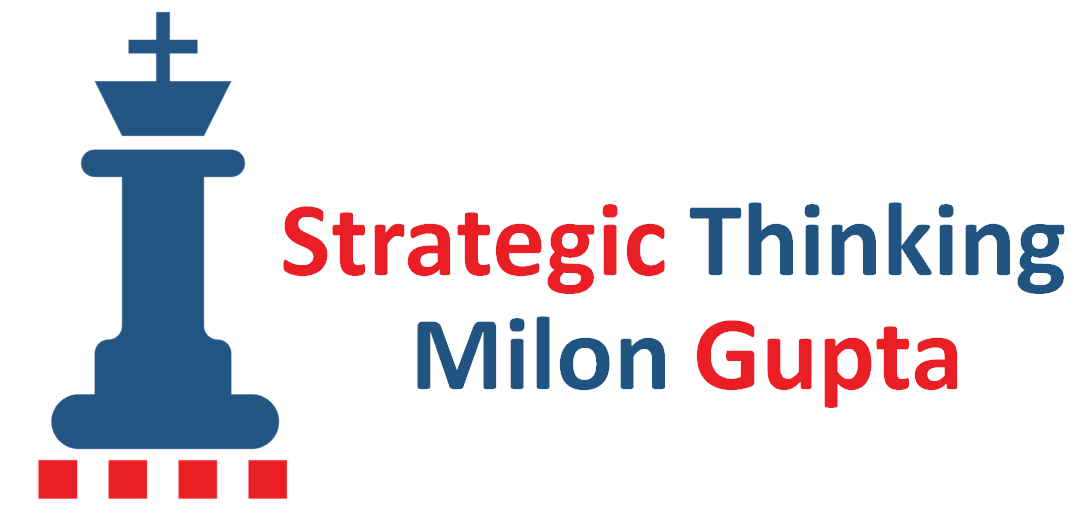
Business leaders need a broad skillset in order to be successful. This includes a wide range of social and intellectual capabilites. However, the one competence that distinguishes sustainably successful leaders is their ability to think strategically. This is the key results of a study by Management Research Group, conducted in 2013 among 60,000 managers in 140+ countries and 26 industries (source: blog article by Robert Kabacoff, Harvard Business Review, 7 February 2014).
On average, the responding managers considered strategic thinking 10 times more important for business success than other behaviours studied. They regarded strategic thinking to be twice as important as communication and almost 50 times more important than hands-on tactical behaviours. In a follow-up study , Management Research Group asked 10,000 senior executives to select the leadership behaviours most critical to their organizations’ future success – 97 percent of the respondents chose strategic thinking.
What does it actually mean to think strategically? It means that you think ahead of the curve, take a broader and deeper look into business options for the future, and consider what effects major trends and potential strategic decisions have on the different areas of your company. It requires a combination of systematic, rational analysis with an intuition-driven holistic insight into the pros and cons of different strategic options. Strategic thinking is an art that unites mindset, analytical techniques, intuition, and creativity.
Now, if strategic thinking is so important for business success, what can executives do to foster their own strategic thinking and that of their employees?
There are three measures executives can apply to create a fertile ground for strategic thinking:
- Set aside time for strategic thinking. Under the daily pressure of operational tasks, this may be easier said than done. However, if you want to plan for future success, you need to have that time, or you will be driven by the strategies of others. Enter an appointment with yourself or with you executive team in your calendar to spend time for reflection on strategic options.
- Keep your mind open and stay alert for information that may be relevant to the strategic direction and future success of your company. It is important that you also absorb information from other business sectors and companies, as their cases and experiences may have strategic lessons or inspirations for your own strategies. This should become a regular habit.
- Get professional training for yourself and your executive team. Even seasoned executives need to keep their minds sharp and up-to-date with strategic thinking techniques. Furthermore, getting feedback on your strategic thinking habits in a workshop will help you be aware of your cognitive biases and, thus, enable you and your team to avoid serious strategic errors.
Contact me, if you wish to know more about how to foster your strategic thinking.
